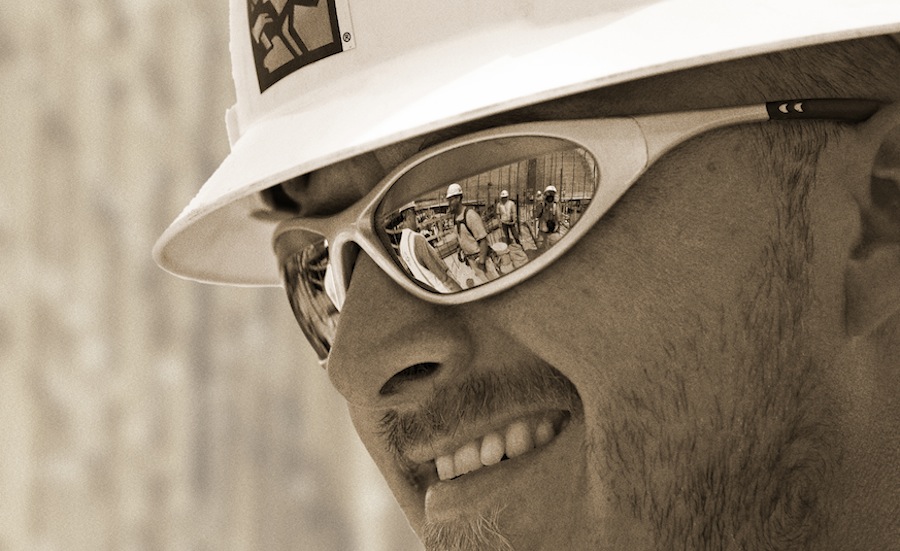To the Craft Workers of the Construction Industry:
There’s a lot of talk these days about the crafts: Will there be enough people? Will they get the work done? Can we train them in time?
And there’s a lot of talk about safety, how construction has to do better and how the key is empowering the workers by treating them with dignity and showering them with respect. So that they’ll know they are considered important, and that management cares, and as part of that culture they’ll care about and take care of each other.
We're going to be writing about that in ENR, but when I stopped to think about it I had to admit that if you are a mason, a laborer, a carpenter or an equipment operator, I may have met you or your co-worker sometime, or we may have chatted on the jobsite. And I even have a construction worker in my family now that I’m so proud of, my son-in-law, a journeyman electrician.
Still, I don’t know you, really. And I don’t pretend to know your work life from the inside. I don’t know what it’s like to show up at 7 a.m. to pull wire when it's 12 degrees F out there. I don’t know what it’s like when an iron splinter flies up at your face. I don’t know what it’s like to put in six 12s bending pipe on a powerplant or refinery turnaround. I'll never really know.
Now, I have to admit I was skeptical about how far this idea about safety-by-worker-empowerment can go, outside the energy and industrial projects where owners first demanded better safety and the employers and their crews are delivering it. Racking up millions of injury-free hours. Union and open shop.
My feeling is that outside the industrial and energy and elite manufacturing market segments, the conditions vary from project to project, market to market, region to region.
The Safety Difference-Makers
We’ll never know what the safety difference-makers are, from your point of view, unless you tell us, open and honest, without the boss looking over our shoulder. What makes you safe? A job that runs on time? A shop steward who protects you from schedule-obsessed project managers? A safety manager who has real authority to take care of you and train you and equip you and protect you from being pushed to do risky things?
Or is it what the more safety-proud contractors talk of? That they treat you with respect, and ask you never to deliberately overlook a hazard or near-accident, that what you say is welcomed and not resented. That the safe places to work are those where you are never rushed to hang those last few sections of drywall, to swing one more beam into place, when your knees are getting a little tired, and the reach is a little too far, and the light isn't as good, and there's no time to position the equipment properly. That allow you to wait until the morning, until you talked about the hazards, put everything in place, to be sure you can do it safely and do it right. Those bosses, those companies.
We’ll never know unless you tell us, right now, in time for our features for Safety Week in April, starting in the comment section below in this blog post or with an email to me at kormanr@bnpmedia.com.
We’re listening.
Richard
Richard Korman, Deputy Editor


Post a comment to this article
Report Abusive Comment